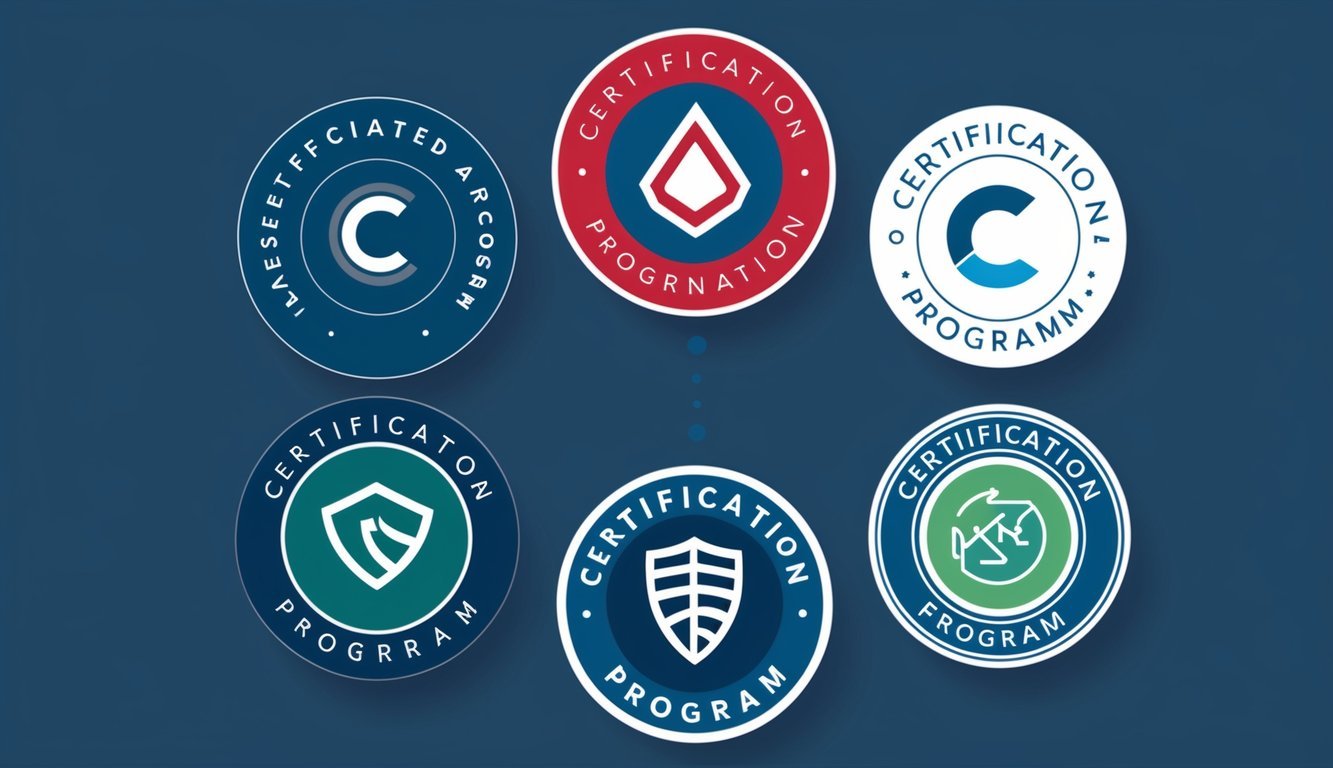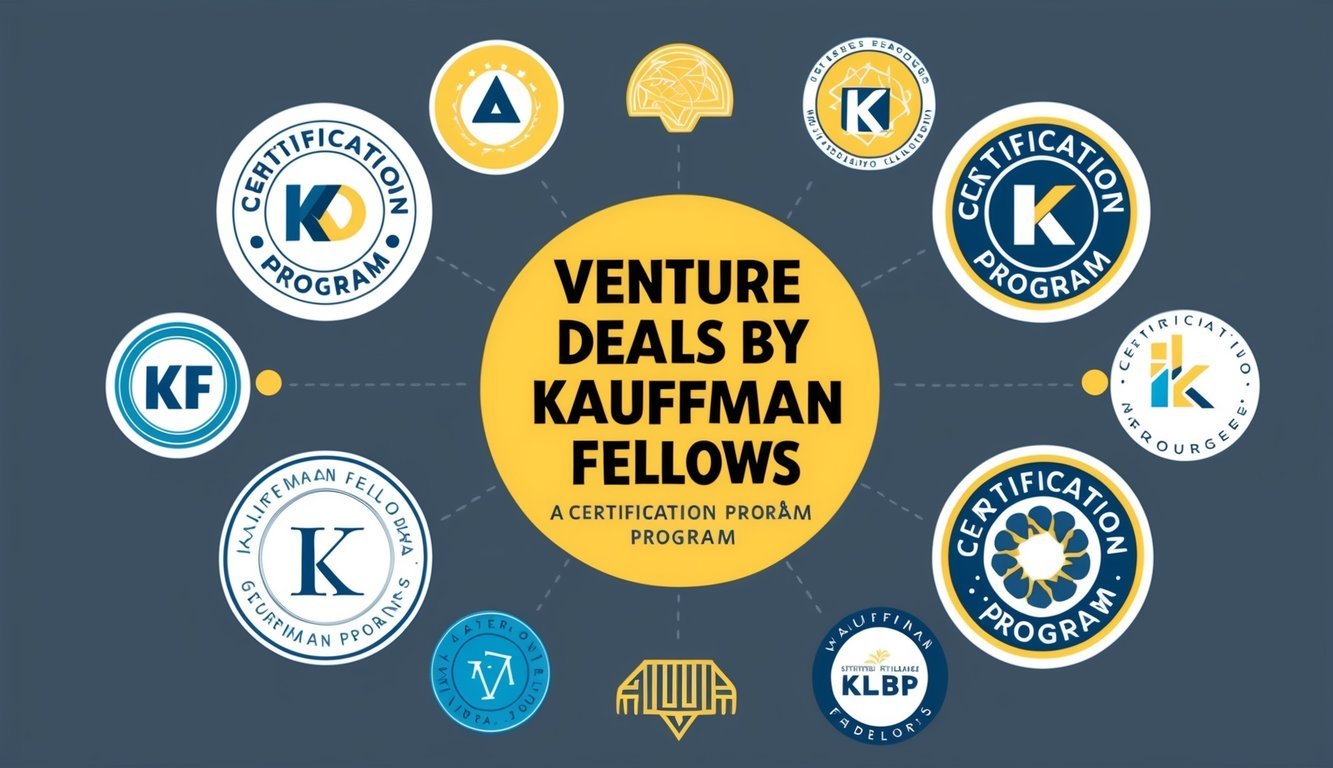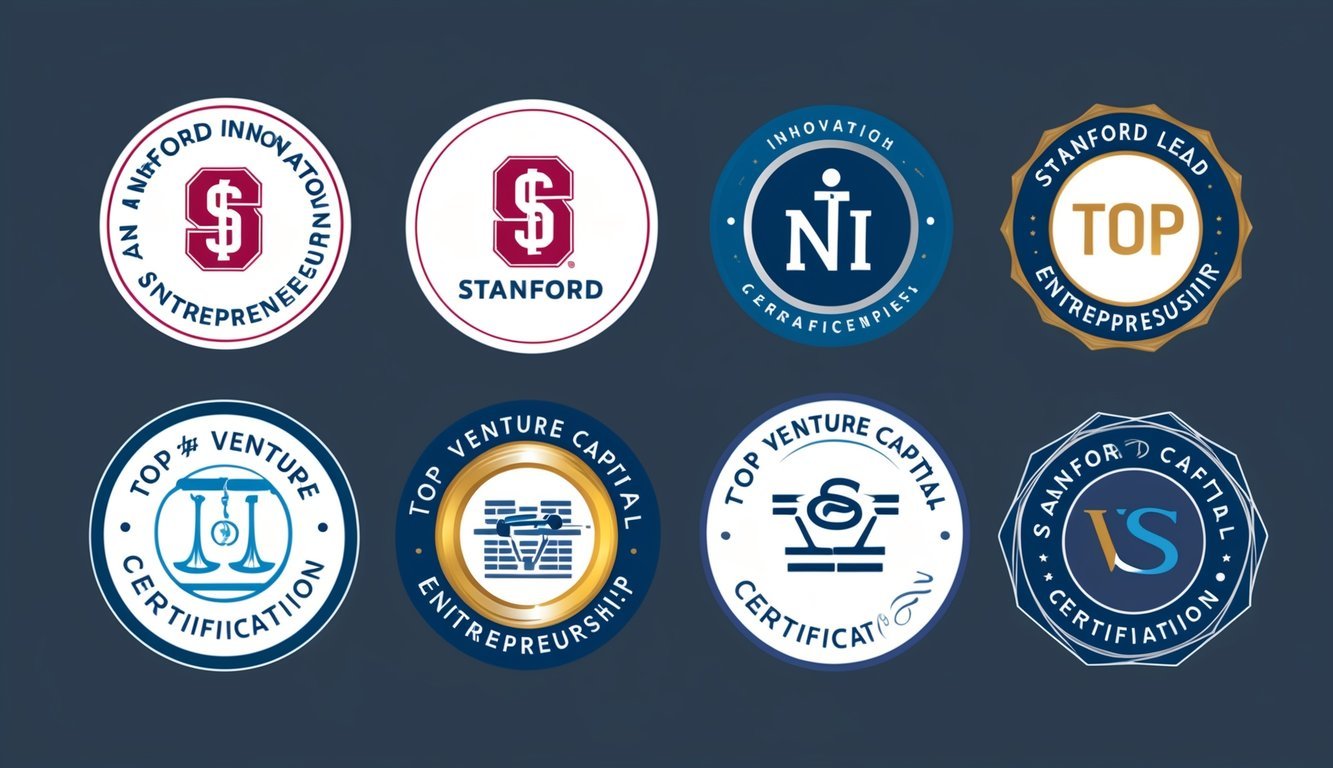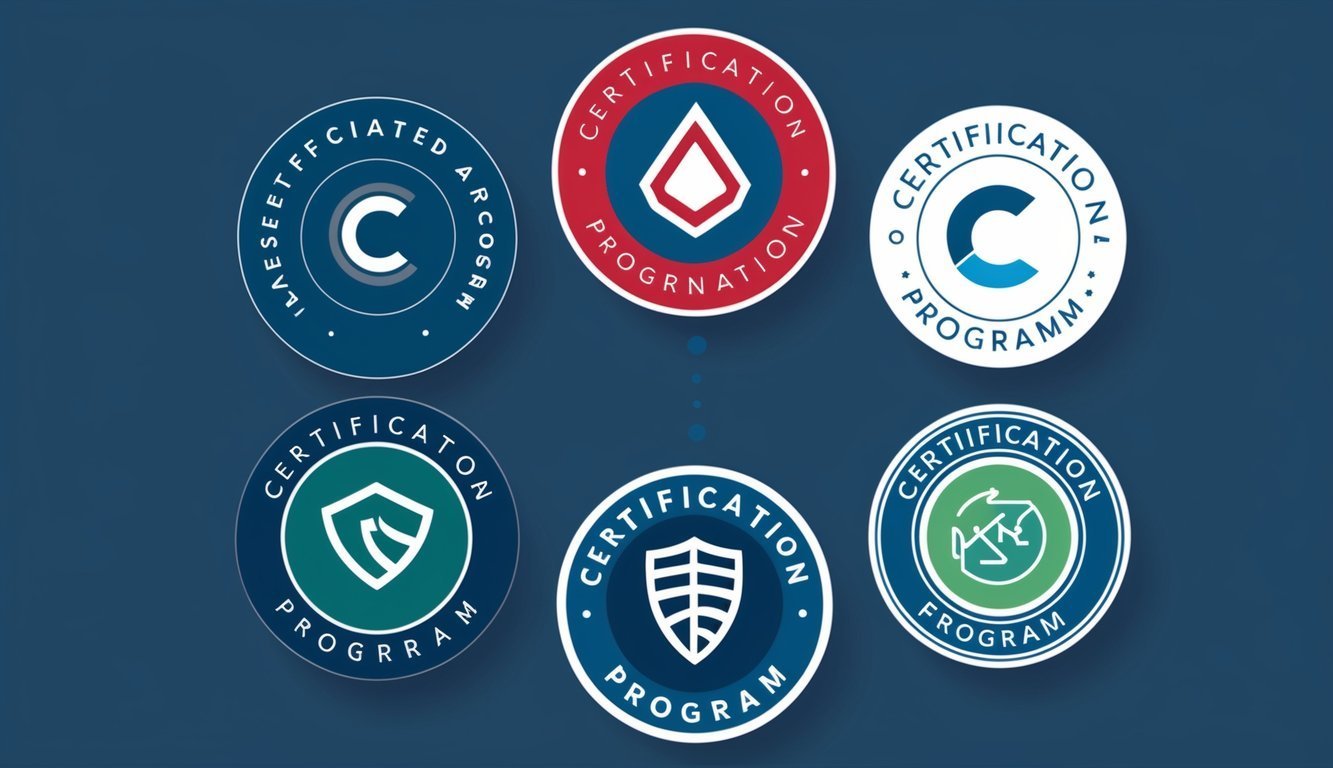“`xml
Venture capital is a big player in the business game.
It not only helps fresh startups grow but can also line investors’ pockets.
But let’s be real—getting a handle on how it all functions can feel like trying to crack a secret code.

That’s where venture capital certification programs come into play.
These programs break down the complex world of VC, teaching you how to spot solid investment opportunities and navigate potential pitfalls.
They can turbocharge your career or get you started on your investing journey.
1) VC University Online

If you’re looking to learn the ropes of venture capital from the pros, check out VC University Online.
This course is perfect for newbies or anyone wanting to sharpen their skills.
You’ll cover essential topics like fund structures, term sheets, and how to value a startup.
The course features video lectures, quizzes, and interactive activities to keep things fun.
One unique aspect? You’ll get insider stories from real venture capitalists that you won’t find in textbooks.
It’s like having a backstage pass to the VC world.
Networking is a biggie in the VC landscape, and this course helps you connect with fellow participants and industry bigwigs, which could lead to exciting opportunities down the line.
When you complete the course, you’ll get a certificate to flaunt your newfound expertise—definitely a nice touch for your resume while job hunting in the VC realm.
The cherry on top? You can learn at your own pace from anywhere.
No need to rearrange your life or take time off—just log in and dive in whenever you find a moment.
2) Financial Modeling Program by Wharton
Want to up your financial modeling game? Wharton’s your go-to.
Their Business and Financial Modeling Specialization is highly rated.
You’ll learn to build spreadsheet models that help with real-world business decisions, covering investment analysis, company valuation, and forecasting.
Guided by experts from Wharton, you’ll gain hands-on experience with common scenarios in finance.
Plus, you can tackle it all online at your own pace over about five courses, each lasting four weeks.
At the end of it, you’ll be whipping up your own financial models—an invaluable skill not just in VC but across many finance sectors.
If you’re eager for more, check out Wharton’s Venture Capital Executive Program.
It’s an ideal choice for those eyeing a career in VC.
3) Venture Deals by Kauffman Fellows

Hey! Want to learn the ropes of raising capital from the best? Check out the Venture Deals course by Kauffman Fellows and Techstars.
It’s an engaging online program that demystifies startup funding.
This course covers all the basics of venture capital deals.
You’ll learn how to secure funding for your startup and improve your understanding of the entire process, whether you’re a total newbie or already have some experience.
The best part? It’s totally free! With video lessons from actual investors, you’ll pick up valuable tips and insights that can help you navigate the VC funding world.
You’ll dive into term sheets, negotiation tactics, and company valuation.
It feels like scoring a VIP access pass to the VC scene.
Plus, you can fit the learning into your schedule—how great is that?
Don’t miss out—the next Venture Deals course is coming soon.
Leap at this chance to sharpen your startup skills and get your fundraising game on point!
4) AngelList Venture Capital Certificate

If you’re eager to learn about venture capital from industry experts, take a peek at the AngelList Venture Education Center.
It’s packed with valuable info for budding investors.
The Education Center covers all the basics, including how to invest in startups, venture economics, and essential legal knowledge.
It’s a fantastic starting ground for both beginners and those looking to enhance their VC skills.
AngelList neatly organizes topics so you can easily absorb the material, from running a VC fund to making angel investments.
And the best news? All of it is free and available whenever you want.
While it’s not a formal certification, you’ll gain real-world insights from seasoned VCs that can set you on the path to success.
Think of it as having a personal VC mentor right on your device!
If you’re itching to step into the VC arena, give the AngelList Education Center a try.
It’s an excellent way to start building your venture capital knowledge without burning a hole in your wallet.
5) Berkeley Venture Capital Program
Want to learn about venture capital from one of the best? Check out the Venture Capital Executive Program at UC Berkeley.
This five-day in-person course gives a thorough look into the VC world.
You’ll get guidance from Berkeley faculty and industry experts, delving into everything from fund selection to investment strategies.
Whether you’re dreaming of becoming a VC or seeking funding as an entrepreneur, this course fits the bill.
It’s also a great option for executives involved in corporate mergers and acquisitions.
What’s the highlight? You’ll get a firsthand look at Silicon Valley’s VC scene—like having access to the inner workings of tech investments!
The program runs several times a year and costs around $9,900—definitely a worthwhile investment in your future.
You’ll walk away equipped with skills and connections that can elevate your VC game.
Keep in mind that spots fill up fast.
If you’re serious about a career in VC, it’s a good idea to check the upcoming dates and grab a spot ASAP!
6) Stanford LEAD Innovation and Entrepreneurship

Want to boost your innovation and entrepreneurial chops? Stanford LEAD is a great choice.
This engaging online program is designed to help you bring real impact to your organization.
You’ll learn from the same brilliant instructors who teach at Stanford’s Graduate School of Business—their expertise is unmatched.
The Stanford LEAD Online Business Program emphasizes turning knowledge into action.
You’ll pick up strategies to ignite new ideas and put them in motion.
It’s not just about absorbing info—it’s about taking real steps forward.
This program helps you discover your purpose and reach your potential, which is critical in today’s fast-paced business landscape.
The cherry on top? You can tackle it at your own pace! The interactive online format makes it easy to fit into your schedule.
By the end, you’ll have the skills you need to drive innovation and tackle new challenges head-on.
Enhancing Your Industry Knowledge
A venture capital certification gives you the lowdown on the field.
You’ll learn about deal structures, valuations, and investment strategies—basically how to speak the VC lingo.
These programs touch on vital topics like:
- Due diligence techniques
- Portfolio management
- Exit strategies
You’ll earn practical skills that you can’t easily pick up on your own.
Take the Venture Capital Executive Program at Wharton, for instance—it helps you understand how to identify winning startups while spotting potential red flags along the way.
Building a Professional Network
Networking is crucial in venture capital, and certification programs can connect you with industry leaders.
You’ll meet:
- Successful VC partners
- Startup founders
- Fellow aspiring investors
These connections might lead to job opportunities or exciting investment deals.
The Venture Capital Executive Program at Berkeley features networking events with guest speakers, allowing you to mingle with people who can help propel your career.
Plus, you’ll form lasting friendships with classmates who share your passion.
Key Skills Developed in Certification Programs
Venture capital certification programs are all about helping you analyze investments and evaluate startups effectively.
You’ll become proficient in crunching numbers and identifying promising opportunities.
Investment Analysis
In these programs, you’ll learn to dissect the numbers behind potential investments.
You’ll get adept at reading financial statements and appraising whether a company is worth your hard-earned cash.
The courses will empower you to:
- Estimate a startup’s value
- Forecast future growth
- Identify warning signs in financials
You’ll practice using Excel and other tools for financial modeling, equipping you to make informed investment decisions.
Programs like the Foundations in Venture Capital course at Columbia even teach you how to swiftly evaluate hundreds of pitches—what a time-saver!
Due Diligence
Doing your homework on potential investments is super important in venture capital.
Certification programs teach you how to dig deep and uncover essential info about startups.
You’ll learn to:
- Assess the leadership team
- Investigate market size and competition
- Review legal documents
These skills can keep you from landing in a bad deal while helping you discover hidden gems.
Programs like Wharton’s Venture Capital course show you how top VCs make their picks.
You’ll also become capable of assessing market trends and startup potential with confidence.
Getting insights from top wealth management programs can further sharpen your ability to manage risk and optimize returns, helping you build a solid investment strategy that aligns with your long-term goals.
You’ll also practice asking the right questions to founders.
This helps you pick up on red flags and spot great opportunities that others might overlook.
Frequently Asked Questions
Venture capital certification programs can really boost your skills and credibility.
You’ll find a mix of online options and in-person classes.
What certifications can really amp up my game in the venture capital scene?
You’ve got plenty of solid options! The VC University Online program is a great place to start, covering essentials like deal structures and portfolio management.
Another winner is the Venture Deals course by Kauffman Fellows, which dives into the nitty-gritty of term sheets and negotiation tactics.
Are there any worthwhile venture capital courses I can take online for free?
Absolutely! You can find plenty of free introductory courses on platforms like Coursera, giving you a taste of VC basics.
But if you want to go deeper, you might want to invest in a paid program.
How does Harvard’s venture capital course stack up against others?
Harvard’s course is highly respected within the industry, offering top-notch content and networking opportunities.
However, other excellent programs, like the Berkeley Venture Capital Program, also provide great value even in a shorter time frame.
Can I break into venture capital without an MBA?
Many successful VCs come from diverse backgrounds.
Just focus on building relevant skills and networking within the industry.
What key concepts does a newbie to venture capital need to know?
You’ll want to get comfortable with term sheets, valuation methods, and the due diligence process.
The Financial Modeling Program by Wharton is a great resource for mastering these concepts.
How important is having a relevant degree when diving into the venture capital industry?
A relevant degree can definitely give you a head start, but it’s not everything.
What really matters is your grasp of the VC landscape and your knack for identifying promising investments.
Programs like the AngelList Venture Capital Certificate can help fill any gaps in your knowledge.
You got this!
“`

